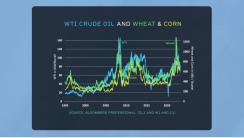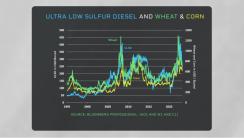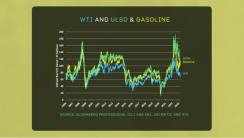Erik Norland, CME Group
AT A GLANCE
- Gasoline and diesel are more relevant points of comparison for agriculture prices than crude oil itself
- A shortage of refined products may explain why corn, wheat and soybean prices haven’t fallen in line with crude oil
The temptation is to start with crude oil. Indeed, for much of the past two decades, the prices of corn, wheat and soybeans have been closely linked to the price of West Texas Intermediate (WTI) Crude Oil. When WTI prices are high, crops prices tend to be high, and vice versa.

However, crop prices seem to be even more closely linked to the prices of gasoline and diesel than they are to crude oil itself. This makes sense because farmers don’t farm with crude oil. They plow their fields, harvest their crops and transport them to market with machinery that is powered by gasoline or diesel engines, making these more relevant points of comparison for agriculture prices.

The output side is important as well. Ethanol from corn gets added to many gasoline blends, whereas soybean oil can be added principally to diesel fuels.

So what’s happening with the oil product markets? Well, crude oil prices have been falling, but diesel and gasoline prices have remained high amid a shortage of refined products. This may explain why corn, wheat and soybean prices haven’t fallen in line with crude oil.






